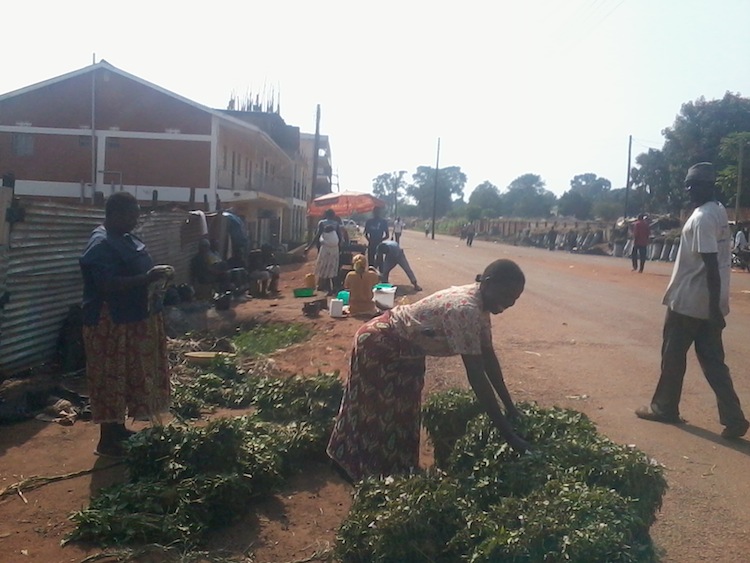
All partners of the FP7 project 'Gratitude' gathered recently (22nd-26th April) in Bangkok, Thailand to conduct a successful mid-term review planning meeting.
Presentations were given by each of the project's eight research package leaders on what has been achieved so far on the proposed tasks. The team also discussed the issues and challenges that need to be addressed in order to reach the mid-term review targets.
The Gratitude project (Gains from Losses of Roots and Tubers), which involves partners from three continents; Africa, Asia and Europe, facilitates the interaction between Asia and Africa on solutions that will reduce waste from postharvest losses of root and tuber crops cassava and yam.
'Gratitude' is led by the Natural Resources Institute and funded by the European Union Seventh Framework Programme.
The presentations and discussions that took place during this meeting were particularly useful for connecting the partners in the 'south' who shared information on methods for utilising the waste from cassava, for example the peels and stalks.
Communications was a key topic discussed at the meeting. Participants were provided with materials and guidelines to increase the impact of the project's communications strategy.
One particular challenge highlighted during the meeting was the difficulty of researching food safety for food product development in Nigeria and Ghana.
As part of the meeting, to gain an understanding of the cassava industry in Thailand, participants were given the opportunity to tour a cassava starch based sweetener manufacturer, Chao Khun Agroproducts, where they could observe the whole process. They also visited Namfon farms, a dairy farm in the Saraburi Province of Thailand, which uses cassava chips for feeding their 3,000 cattle because of the high carbohydrate content of cassava.
Dr Nanam Dziedzoave from the Food Research Institute in Ghana said of the visit: "It has been interesting to see the set up at Chao Khun Agroproducts because the process of syrup making is something we have been trying very much to develop in Ghana. To see it operating live is very encouraging."
The meeting was a success. Professor Keith Tomlins, the Gratitude Project Coordinator says: "The meeting in Thailand demonstrated the interesting comparisons and insights between the cassava value chains in each country, and how waste is currently managed. We are making progress in understanding ways to improve the storage life of yams, develop new products and find new uses for waste products. It is great to see new links being forged between partners in Africa and Asia and to see future visits being planned. I very much appreciate the effort and contribution everyone is making and look forward to the next steps in the project."

